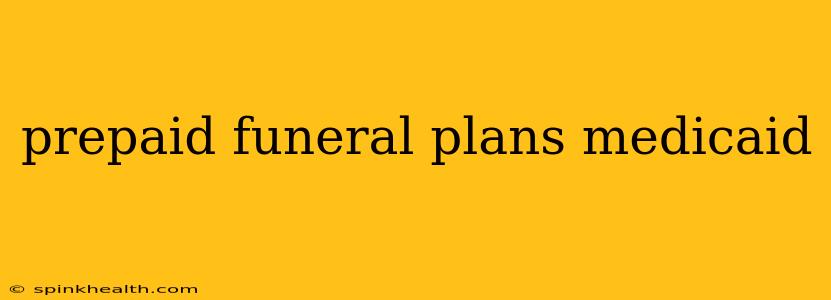Planning for the inevitable can be emotionally challenging, but ensuring your final arrangements are taken care of with dignity and without burdening your loved ones is a responsible act. Prepaid funeral plans offer a sense of security, allowing you to pre-arrange and pre-pay for funeral services. However, the interaction between prepaid funeral plans and Medicaid can be complex. This guide unravels the intricacies, providing clarity and answering frequently asked questions.
Imagine this: Sarah, a meticulous planner, recently secured a prepaid funeral plan, offering her peace of mind. But she's worried about how this will impact her Medicaid eligibility. This is a common concern, and understanding the nuances is crucial.
Can Medicaid Pay for a Prepaid Funeral Plan?
The short answer is: Generally, no. Medicaid is designed to assist individuals with low income and limited resources with their current healthcare needs. It doesn't typically cover pre-paid expenses, including funeral arrangements made in advance. Medicaid funds are primarily allocated for ongoing medical care, not for future expenses like funeral plans, regardless of whether the plan was purchased years ago. The funds are intended to address immediate health crises and support ongoing healthcare maintenance.
What Happens to My Prepaid Funeral Plan if I Qualify for Medicaid?
This is where it gets tricky. The status of your prepaid funeral plan won't directly impact your Medicaid eligibility. Your eligibility depends on your current income and resources. However, the assets used to fund your prepaid funeral plan might be considered when determining your eligibility for Medicaid benefits at the time of your death. This is because after your death, Medicaid might seek reimbursement from your estate, including assets used for pre-paid funeral services.
Can I Use My Prepaid Funeral Plan if I'm on Medicaid?
Yes, you can use your prepaid funeral plan even if you're receiving Medicaid. The existence of the plan doesn't disqualify you from Medicaid benefits during your lifetime. The plan simply covers the pre-arranged funeral expenses. However, as mentioned earlier, your estate might face potential reimbursement claims from Medicaid after your death, contingent on your estate's value.
What are the Rules Regarding Medicaid and Funeral Expenses After Death?
Medicaid's role post-death involves the recovery of expenses incurred on behalf of the deceased. If Medicaid paid for any healthcare costs during the person’s final years, they might seek reimbursement from the estate after death. This process involves determining the value of the estate, which may include the funds from the prepaid funeral plan. The specific rules vary by state.
What are My Options for Funeral Planning While on Medicaid?
If you're concerned about the costs associated with funeral services and are on Medicaid, it's advisable to investigate state programs offering assistance for funeral expenses for low-income individuals. These programs are often state-specific and have varying requirements and limitations. It's best to consult with your local Medicaid office or social services agency to learn about available options.
Does Medicaid Cover Funeral Costs if I Die Unexpectedly?
Medicaid does not typically cover funeral costs, even in unexpected circumstances. While Medicaid covers healthcare during life, funeral costs are considered post-death expenses. However, some states may offer limited assistance or burial programs for low-income individuals, so it’s important to check your state’s specific policies.
Sarah, having understood these nuances, now feels better equipped to navigate the complexities of prepaid funeral plans and Medicaid. She realizes that while her plan provides peace of mind during her lifetime, potential post-death implications require careful consideration and understanding of her state’s specific regulations. Remember, seeking guidance from a financial advisor and Medicaid representative is crucial to making informed decisions.

